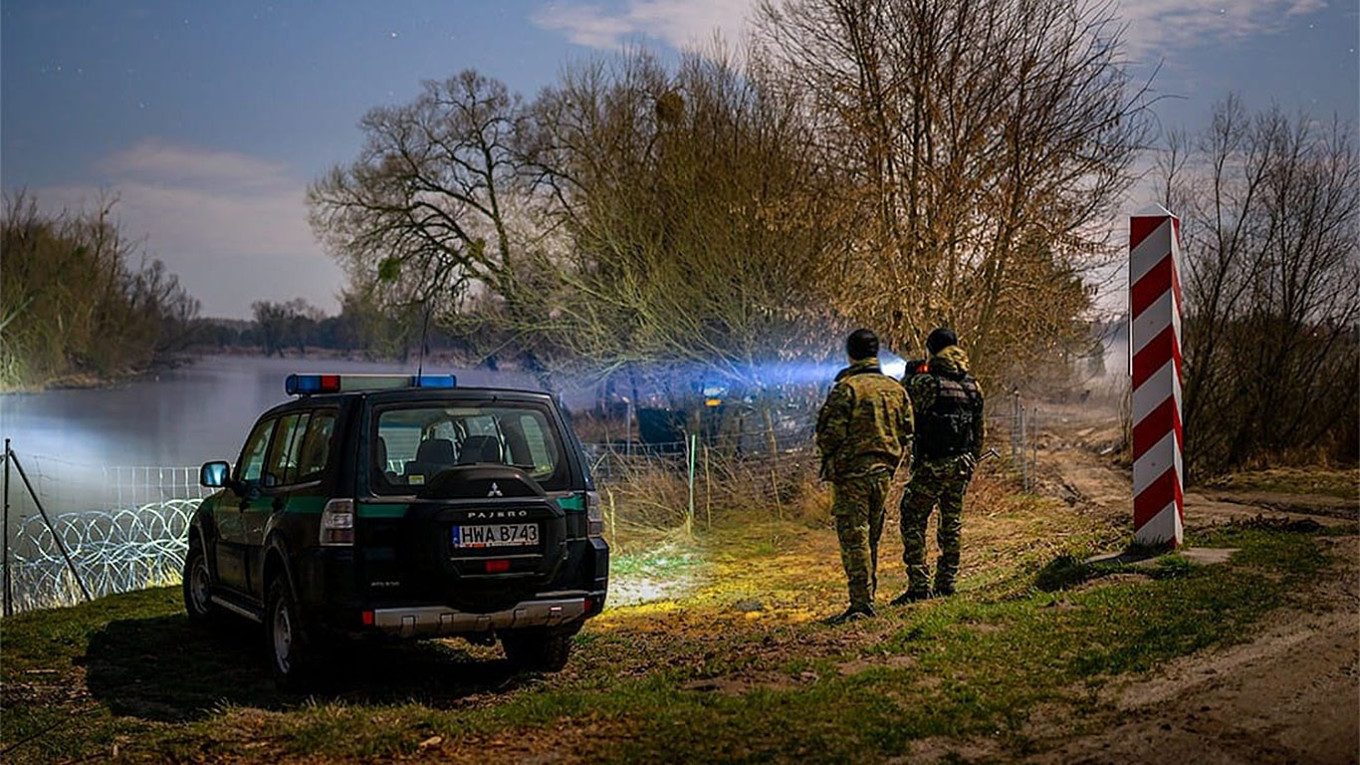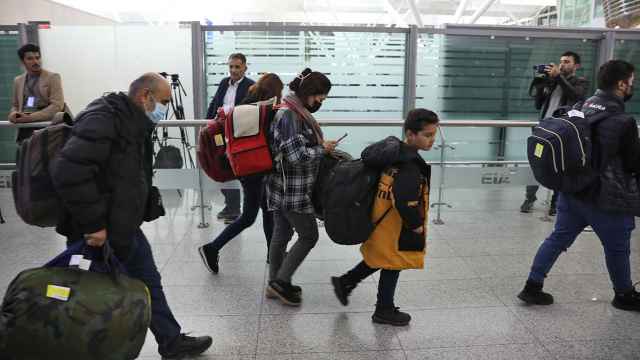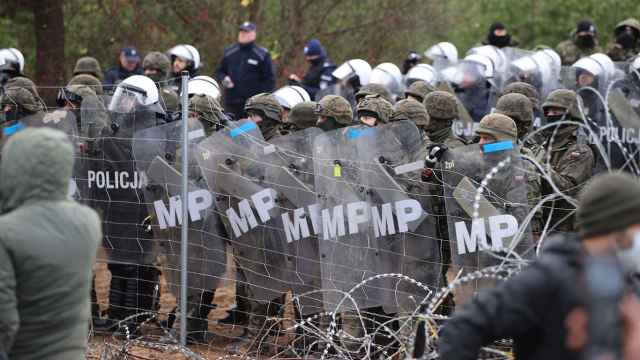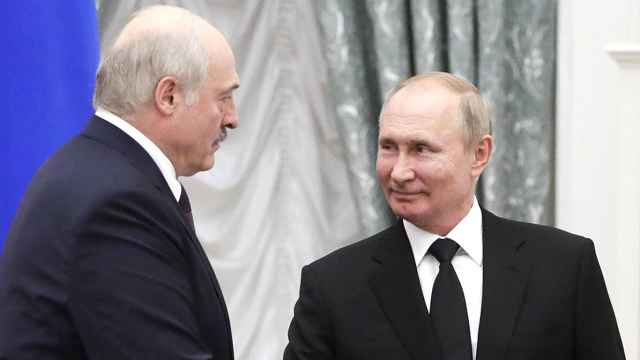Poland has started construction of a barrier along its border with Russia amid Warsaw's concerns that Moscow could orchestrate a migrant crisis on the European Union’s frontiers, Russian state media reported Wednesday.
A senior official in Poland’s ruling party disclosed plans last week to erect a barrier on the border with Russia’s Kaliningrad region after its airport announced an open skies policy to attract Asian and Persian Gulf airlines.
Kaliningrad, Russia’s Baltic exclave, shares land borders with ex-Soviet EU member Lithuania to the northeast and fellow EU member Poland to the south.
Poland’s Deputy Prime Minister and Defense Minister Mariusz Błaszczak said Wednesday that Warsaw took border security measures in response to the Kaliningrad airport’s new policy, according to Russian state-run news agency RIA Novosti.
“As soon as today, [workers] will start building a temporary fence on the border between Poland and the Kaliningrad region,” Błaszczak was quoted as saying.
He said the barrier will consist of three lines of barbed wire standing 2.5 meters tall and 3 meters wide.
The Polish border guard said it would select a contractor for the Kaliningrad border wall by the end of November, according to Sky News.
A week after calling the construction plans “stupid,” the Kremlin said Wednesday that the Polish border fence is “their business.”
Officials in the Kaliningrad region on Wednesday dismissed the border fence construction as an act of “populism,” but said that a similar fence has already been erected on the Russian side.
Poland’s historically strained relations with Russia sank to new lows after Moscow invaded Warsaw’s ally Ukraine in February and raised fears of a wider conflict with the West.
Krzysztof Sobolewski, the ruling party official who disclosed Poland’s border-wall construction plans, last week called the Kaliningrad airport’s open skies policy a “hybrid war” and an “offshoot” of Russia's Ukraine invasion.
Poland completed a 5.5-meter steel barrier along its 187-kilometer border with Belarus this summer after accusing Russia's ally Minsk of sending tens of thousands of African and Middle Eastern migrants toward the Polish border in 2021.
Belarus denied Western accusations that it had weaponized migration in retaliation to EU sanctions.
Latvia, another EU member and former Soviet republic, completed a 2.7-meter-tall barbed wire fence along a 93-kilometer section of the Russian border to combat illegal migration in 2019.
A Message from The Moscow Times:
Dear readers,
We are facing unprecedented challenges. Russia's Prosecutor General's Office has designated The Moscow Times as an "undesirable" organization, criminalizing our work and putting our staff at risk of prosecution. This follows our earlier unjust labeling as a "foreign agent."
These actions are direct attempts to silence independent journalism in Russia. The authorities claim our work "discredits the decisions of the Russian leadership." We see things differently: we strive to provide accurate, unbiased reporting on Russia.
We, the journalists of The Moscow Times, refuse to be silenced. But to continue our work, we need your help.
Your support, no matter how small, makes a world of difference. If you can, please support us monthly starting from just $2. It's quick to set up, and every contribution makes a significant impact.
By supporting The Moscow Times, you're defending open, independent journalism in the face of repression. Thank you for standing with us.
Remind me later.






